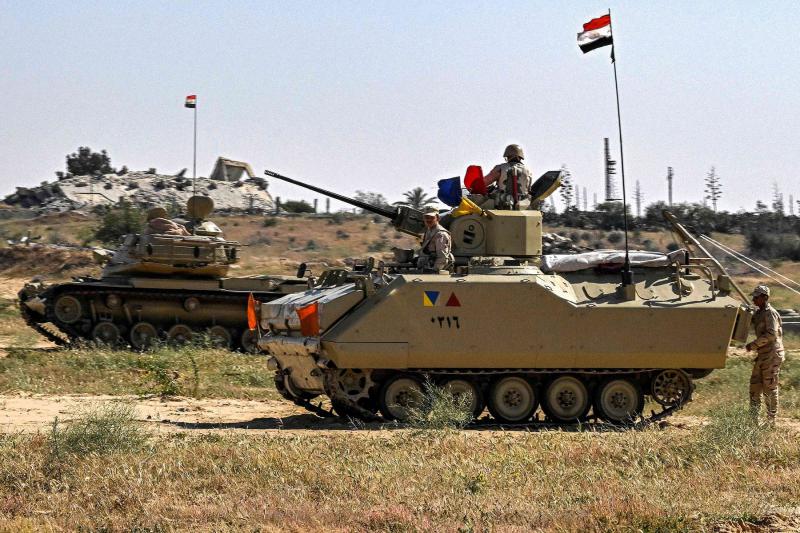“At government level, sentiment is pretty closely aligned with popular feeling,” H A Hellyer, an expert on Middle East security at the Carnegie Endowment for International Peace, told The Guardian.
“There is a great deal of anger. Whereas in 2014 there was a lot of public expression of antipathy towards Hamas, that is not visible in this conflict,” added Hellyer.
A senior Egyptian official told The Associated Press that Cairo has lodged protests with Israel, the United States and European governments, saying the offensive has “put its decades-old peace treaty at high risk”.
Foreign Minister Sameh Shoukry has nonetheless sought to calm worries over the future of the deal. “The peace agreement with Israel has been Egypt’s strategic choice for 40 years, and it represents a core pillar … in the region for peace and stability,” he said, adding that there are mechanisms for adjudicating violations of the agreement.
Egypt was the first Arab country to sign a peace treaty with Israel in 1979, and has long acted as a key mediator between Israeli and Palestinian negotiators, including in the current war.
Senior Israeli officials worry that Cairo could end its mediation role, even though that role is of strategic importance to Egypt and underpins its ties to the US.
Cairo seems to be applying pressure in order to secure a less precarious position in dealing with Israel. “Everything is possible and is on the table, including the downgrade of the relations. But we are not there yet. We are talking to the Israelis, trying to explain and reach a consensus,” an Egyptian official told CNN .
Israel’s offensive is alienating other Arab neighbours and signatories of peace deals beside Egypt. Tensions have risen with countries including Jordan or even the UAE.
Emirati Foreign Minister Sheikh Abdullah bin Zayed Al Nahyan rebuked Binyamin Netanyahu in recent days after the latter claimed that Abu Dhabi could be involved in aiding a future government in Gaza after the war. He said “the UAE refuses to be drawn into any plan aimed at providing cover for the Israeli presence in the Gaza Strip”.
While Netanyahu seems bent on pursuing a war that keeps him in power regardless of its civilian toll, Israel’s normalised ties are turning frosty.
According to Jerusalem Post analyst Seth Frantzman, the risk for Israel is not just one of growing isolation but also that “many of the taboos in the region, such as challenging peace treaties, could suddenly become less taboo, which would be a major setback for Israel”.


